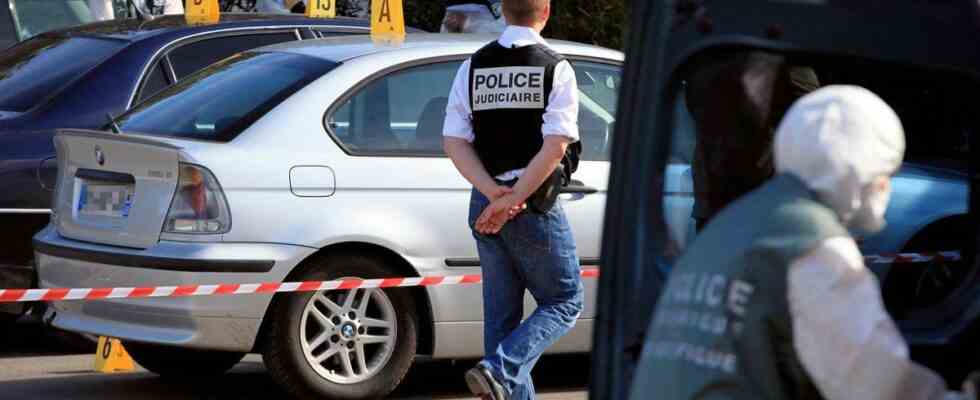Prosecutors, lawyers, investigators… The project to reform the judicial police, led by the Minister of the Interior, Gérald Darmanin, has achieved consensus among justice professionals who, for several months, have been warning about its consequences. The National Conference of Public Prosecutors recently expressed its concerns and warned of the “dangers” of the project, while the National Council of Bars asked the government to reconsider. The first concerned, police officers specializing in complex and sensitive cases, for their part came together massively, this summer, within an association, to mobilize against what they describe as an “opaque and deadly” reform, with “disastrous consequences for the security of citizens and the independence of justice”.
The mobilization of justice actors ended up arousing the interest of deputies and senators, who decided to create two fact-finding missions: one to the Assembly, whose creation was to be recorded on Tuesday, and the another in the Senate, which will aim to “examine the advisability of the reorganization [de la police] announced by the government”, and which should come into force in 2023.
“It’s very worrying”
The idea of the government, consisting globally of modeling the architecture of the police on that of the national gendarmerie, is not new, explains Olivier Cahn, professor of criminal law at the University of Cergy and researcher at the Center for Sociological Research. on penal law and institutions (Cesdip). “In the police, there is a general management with a chief, Frédéric Veaux. And below, different central directorates: public security, territorial intelligence, the judicial police and the border police, he explains. It is a functioning in silos, which creates duplication and above all a lack of circulation of information between the different departments. »
The reform project therefore plans to place all the police services at the level of the department, under the authority of a single departmental director of the national police (DDPN), himself answerable to the prefect. “A similar reform was attempted 30 years ago. And given the unsatisfactory results, it had been abandoned,” notes Olivier Cahn.
According to its detractors, the reform project consists essentially of unraveling the judicial police, which specializes in serious and complex cases, to strengthen their colleagues in the departmental security forces, in charge of cases which concern petty and medium-level delinquency – burglaries, violence on the public highway. … Objective: to fight against a feeling of insecurity that politicians see growing within the population. “The staff of the judicial police will be called upon to compensate for the shortcomings in public security, deplores a commissioner. Serious cases will no longer be dealt with, and we will see the installation of mafias, organized criminal groups, corruption… It is very worrying. »
“An ineptitude”
What the “pijistes” fear is purely and simply the disappearance of this department created by Clémenceau in 1907 and which has, on many occasions, shown its effectiveness in resolving the most sensitive cases. “Let there be a reform of the national police, why not. But not in the state of the project”, underlines Yann Bastière, national delegate investigations within the union SGP-police unit FO. “Let’s not touch too much on what works and give the departmental securities, which deal with large volumes of files, the real means of working on everyday delinquency. In men, managers and resources,” he continues.
Another point of tension: the judicial police services would therefore, after the reform, be departmentalized, while they are organized today “at the regional, even interregional level”, adds Olivier Cahn. A level that poses a problem for the sleuths of the PJ, accustomed to tracking down offenders who play with borders, both administrative and geographical. The risk, by focusing on local affairs, “is that complicated affairs will be abandoned, let’s say it, particularly in economic, financial and political matters”, warns the researcher. “It’s nonsense, blows in turn Yann Bastière. The territorial network, which is the strength of the judicial police, is disappearing. »
Finally, they say, it is an unprecedented risk of loss of independence which hangs in the face of the investigators of the judicial police. “We obviously fear that by placing the departmental director of the police under the authority of the prefect, there is much more political interference in the investigations”, notes Olivier Cahn. And to add: “The fear, which is justified, is that the links between the prefect and the local political and economic authorities have an impact on the effectiveness of police investigations. »
Consultation meetings
Feeling the controversy belatedly dawning, Gérald Darmanin has organized, in recent weeks, consultation meetings with the police unions and the bosses of the PJ. The Minister of the Interior asked them to submit proposals to him. The next one, with the trade unions, will take place on October 7. But the bases of the reform, in particular concerning the departmental level, would already be recorded. “In fact, everything is frozen, it’s a facade consultation, he is trying to save time”, regrets a senior official who expects an unprecedented protest movement from the investigators of the judicial police. On September 13, to show their dissatisfaction, investigators from the Bordeaux PJ put their vests barred with a black band on the ground as a sign of mourning, while the DGPN was on site to discuss the reform with department heads. .

